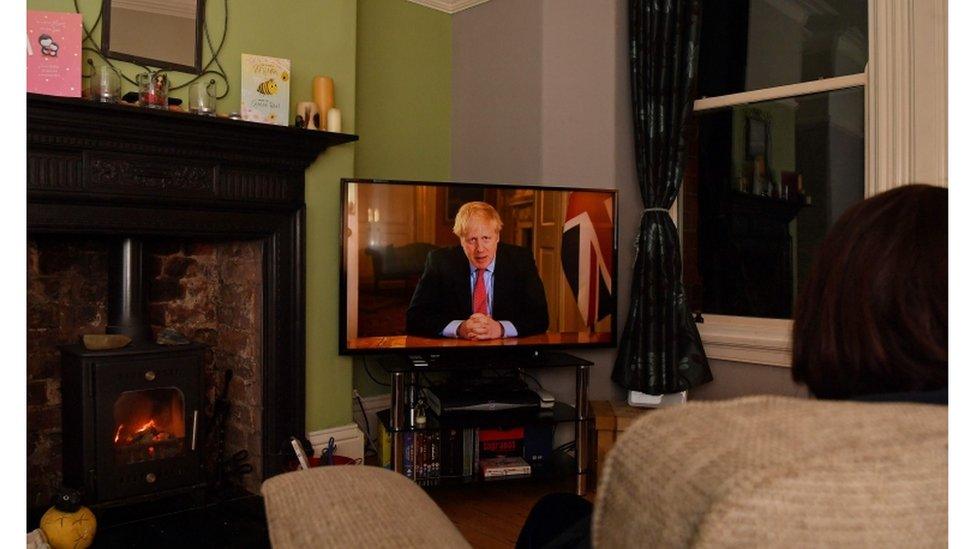Coronavirus: Emergency touches every part of UK life
- Published
- comments

The prime minister's announcement has no comparison in our recent history
Wuhan is more than 5,000 miles away.
But from tonight, the virus that spread from that part of China affects every individual, every family, every household, every business in the country - and it couldn't be closer to home.
At a desk in Downing Street, the prime minister made an announcement that has no comparison in our recent history, instructing everyone in the country to close the doors, stay inside to save lives.
As the number of cases of coronavirus has increased, the government's approach has accelerated rapidly through the measures that only a couple of weeks ago seemed like levers ministers would reach for at some distant hypothetical point in the future.
Arguments about whether to close pubs, cafes and bars 72 hours ago seem academic now, as the UK enters what the Scottish First Minister Nicola Sturgeon has referred to as a lockdown.
Boris Johnson has described this as a moment of "national emergency", listing a set of rules that will limit all our lives, which are no longer advice, but instructions that can be enforced by the police.
You can read exactly what they are here, external.
It seems hard to overstate how huge an impact this will have on the country, and what a massive decision this is for the government to have taken - whose effect will last at least for a period of three weeks at the shortest, potentially for very much longer.
Remember this though, is not quite the kind of total crackdown we have seen in other countries - at least not yet. Despite tonight's enormous announcement, there are steps that other places have taken - curfews or total travel bans for example - that the UK is not pursuing.
The government is not triggering the Civil Contingencies Act, designed for the most serious emergencies which gives ministers draconian powers.
Not surprisingly, there is already therefore enormous controversy about whether the UK has been acting fast enough. There will be a time on the other side of this crisis when scientists will have a full range of evidence that shows which governments, in which parts of the world, made the right decisions, that had the right impacts at the right time.
But that's not now, not yet, because simply, it may be many months before it's anything like clear. Whether Boris Johnson's government made the correct calls will shape his political future as well as the country's.
Any notion that his government with a huge majority might be able to pursue its priorities is very long gone.
Remember, too, for the majority of people who contract coronavirus it is a mild illness; most people will recover.
But the wider emergency is touching everyone - those who fall sick, the doctors, nurses and carers trying to help them, families trying to adapt to this strange new abnormal, businesses huge and tiny trying to survive - and our politics that has changed in these last few days beyond all recognition too.
